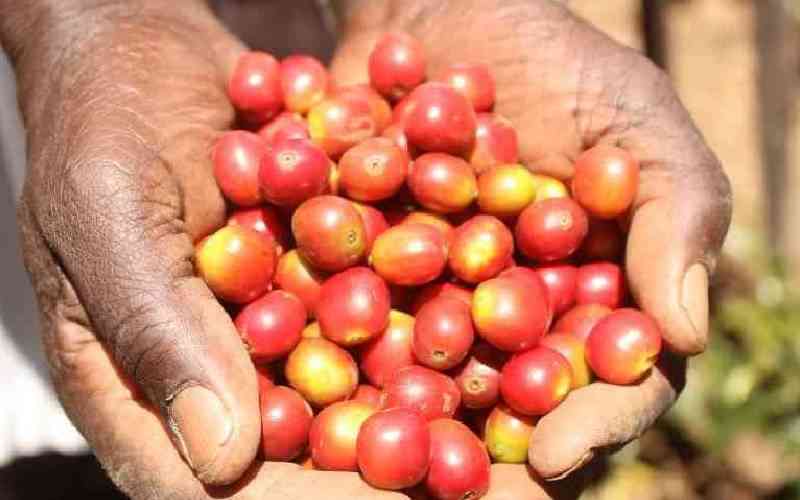
For James Kariuki, a macadamia farmer in central Kenya since 1997, cultivating macadamia nuts has been a double-edged sword. While the crop promises high yields and potential income, the journey from harvest to market is fraught with challenges.
Kariuki, like many of his peers, remembers how middlemen often dictated prices, exploiting unregulated markets to take advantage of small-scale producers.
"Middlemen would wait until the last minute when I was desperate to sell, and then offer prices far below market value," he told Xinhua during a recent interview at his farm.
"They know when you have no choice," he added.
This narrative is all too familiar among smallholder macadamia farmers who have struggled for years against fluctuating prices, limited access to quality markets, and a lack of regulatory support.
Unlike traditional crops, macadamia nuts require specialized care, and the timing of the harvest is critical for maintaining quality.
In recent years, the Kenyan government has stepped in, implementing regulations on macadamia harvest timing to ensure quality and prevent the export of immature produce.
These policies have helped farmers secure better prices and have begun to level the playing field by curbing early-harvest practices that previously flooded the market and depressed prices.
However, this new regulatory environment has also introduced complexities, as farmers now strive to align their harvest schedules with government guidelines while aiming to earn a fair income.
Despite these hurdles, some farmers are thriving and finding renewed hope.
John Kague, another macadamia farmer, has experienced positive changes over the past six years.
"The difference has been remarkable," Kague said, attributing part of this transformation to a market access program that directly connects farmers with larger processors.
These direct market access programs provide farmers with reliable channels to sell their produce while also offering training on how to comply with export standards.
Given that macadamia is a delicate crop, quality is paramount, especially for export to markets in Europe and Asia.
Programs aimed at empowering farmers through certification, training and quality assurance are opening doors that were previously inaccessible.
Kague said that with this new model, he is "no longer selling macadamia just to get by but is actually able to invest back into my farm."
Mary Karanja, who joined a market access program by One Acre Fund two years ago, described her transition as transformative.
"I had always thought my produce was not good enough for export," Karanja said.
"But now, with training and certification, I see my macadamia leaving Kenya and reaching markets overseas."
Like many farmers, Karanja once struggled with market access and quality assurance but has gained the confidence to produce macadamia that meets international standards.
However, meeting these quality standards is not solely a local affair; they must align with global certifications, which impose high expectations for food safety and quality.
"Meeting these certifications is not just about getting a piece of paper; it is about building trust in the global market," said Paul Kanyi, a market access manager at One Acre Fund, a partner in these farmer-focused market initiatives.
"For farmers, this means that their produce reaches a level that is competitive internationally, which is why we have seen such a positive impact on the market," Kanyi said.
These standards have led to higher prices for farmers, as exporters can now sell high-quality Kenyan macadamia at a premium.
Yet, achieving and maintaining certification requires substantial investment, which not all farmers can afford.

To mitigate this, Kanyi said that the market access program covers certification costs, allowing farmers to concentrate on improving production rather than worrying about financial barriers.
While private partnerships have helped create a more sustainable market for Kenyan macadamia, government policies play a crucial role as well.
Through the Agriculture and Food Authority, the Kenyan government has established strict guidelines for harvesting and exporting macadamia, aiming to curb early harvesting and ensure that only mature produce enters the market.
This protects farmers from unscrupulous practices and prevents the devaluation of Kenyan macadamia in the global market.
Among Kenya's agricultural exports to international markets, including macadamia nuts, tea and other produce, exports to China have seen notable growth and have significantly contributed to the nation's earnings.
According to Kenya Plant Health Inspectorate Service, a government regulatory agency, China presents a lucrative market for locally grown avocados, with the government planning to provide incentives to smallholder farmers, including quality seeds, training on value addition, and proper packaging.
The growth in trade has been transformative for Kenyan farmers, granting them access to China's vast consumer market, thereby increasing their earnings potential and diversifying their export destinations beyond the traditionally dominant European Union.
Looking ahead, the Kenyan macadamia sector holds great promise.
The rising global demand for macadamia, driven by its popularity as a healthy snack, means that Kenyan farmers have significant opportunities to increase their incomes.
Export rates have steadily risen over recent years, and with plans to establish a large-scale processing plant in Sagana, central Kenya, even more farmers are expected to gain access to export markets, Kanyi said.
 The Standard Group Plc is a multi-media organization with investments in media platforms spanning newspaper print
operations, television, radio broadcasting, digital and online services. The Standard Group is recognized as a
leading multi-media house in Kenya with a key influence in matters of national and international interest.
The Standard Group Plc is a multi-media organization with investments in media platforms spanning newspaper print
operations, television, radio broadcasting, digital and online services. The Standard Group is recognized as a
leading multi-media house in Kenya with a key influence in matters of national and international interest.











